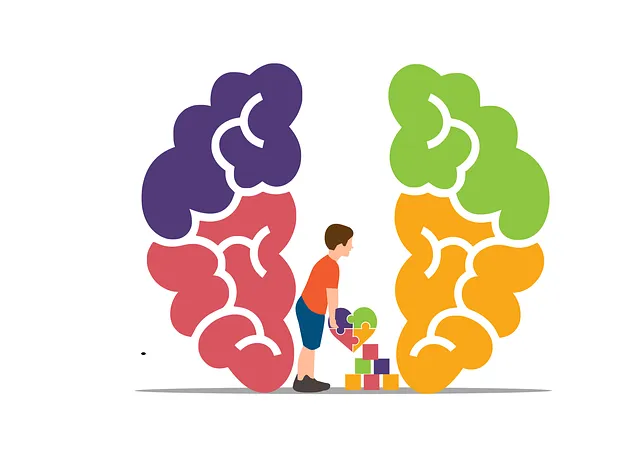Risk assessment is a core aspect of mental health practice, enabling professionals at Kaiser Permanente Lone Tree to identify and mitigate risks to client safety through evidence-based strategies. Their multi-faceted approach includes policy advocacy, staff resilience training, and continuous quality improvement, utilizing the Kaiser Permanente mental health phone number as a vital resource for timely interventions. They prioritize open communication, positive thinking exercises, and mindfulness practices to reduce professional burnout, stigma, and secondary trauma while adhering to legal obligations, ultimately enhancing patient care and provider well-being through comprehensive risk management.
Mental health professionals constantly navigate complex situations, making risk assessment a vital tool for ensuring patient safety. This comprehensive guide explores essential practices for managing risks in mental health care, drawing insights from the experience of Kaiser Permanente Lone Tree. We delve into key considerations, from identifying potential hazards to ethical dilemmas and legal obligations, offering strategies for effective risk management. For those seeking support, the Kaiser Permanente mental health phone number in Lone Tree is readily available.
- Understanding Risk Assessment in Mental Health Practice
- Key Considerations for Safe Service Delivery at Kaiser Permanente Lone Tree
- Identifying and Mitigating Potential Risks for Patients and Providers
- Ethical Dilemmas and Legal Implications for Mental Health Professionals
- Strategies for Effective Risk Management and Continuous Improvement
Understanding Risk Assessment in Mental Health Practice

Risk assessment is a fundamental aspect of mental health practice, guiding professionals in evaluating and mitigating potential risks associated with their work. For mental health practitioners, this process involves thoroughly examining various factors that could impact client safety and well-being. By implementing comprehensive risk assessment strategies, such as those available through the Kaiser Permanente mental health phone number in Lone Tree, healthcare providers can ensure they are equipped to handle diverse challenges.
This methodical approach allows professionals to identify risks ranging from client self-harm or suicide ideation to potential triggers for relapse or exacerbation of existing conditions. Incorporating practices like fostering positive thinking, promoting self-esteem improvement, and encouraging effective self-care strategies is integral to the risk assessment process. Such proactive measures not only benefit clients but also enhance the overall mental health care experience.
Key Considerations for Safe Service Delivery at Kaiser Permanente Lone Tree

At Kaiser Permanente Lone Tree, ensuring safe service delivery for mental health professionals involves a multifaceted approach. Key considerations include implementing robust Mental Health Policy Analysis and Advocacy frameworks to guide clinical practice while fostering an environment that promotes Emotional Healing Processes. This entails regular training sessions aimed at enhancing resilience building among staff, as well as the integration of evidence-based therapies and continuous quality improvement initiatives.
The Kaiser Permanente mental health phone number Lone Tree serves as a crucial point of contact for both patients seeking support and professionals requiring guidance. By leveraging this resource effectively, the organization can facilitate timely interventions, monitor patient outcomes, and ensure adherence to best practices in mental healthcare. This comprehensive strategy not only safeguards the well-being of clients but also strengthens the resilience of mental health professionals within the Kaiser Permanente Lone Tree community.
Identifying and Mitigating Potential Risks for Patients and Providers

Identifying and mitigating potential risks is a core component of comprehensive risk assessment for mental health professionals. At Kaiser Permanente, the Lone Tree location offers specialized support through its dedicated mental health phone line, catering to the unique needs of patients and providers alike. By fostering an environment that encourages open communication and proactive coping skills development, mental health professionals can effectively navigate challenges such as burnout, secondary trauma, and the impact of stigma associated with mental illness.
Implementing strategies like positive thinking exercises, mindfulness practices, and ongoing professional development not only enhances resilience but also contributes to Mental Illness Stigma Reduction Efforts. These initiatives ensure that both patients and providers have access to resources that promote healing, well-being, and a supportive network, ultimately strengthening the overall mental health care ecosystem.
Ethical Dilemmas and Legal Implications for Mental Health Professionals

Mental health professionals often find themselves navigating complex ethical dilemmas and legal implications in their daily practices. These challenges can arise from various sources, including patient confidentiality, informed consent, and potential harm to both patients and practitioners. For instance, a therapist in Lone Tree, Colorado, might face an ethical dilemma when a patient at the Kaiser Permanente mental health phone number reveals intentions to cause harm to themselves or others. Balancing patient privacy and the need to intervene presents a delicate situation that requires careful consideration.
The legal implications of these dilemmas can be significant. Mental health professionals must stay informed about state laws and guidelines regarding confidentiality, crisis intervention, and reporting requirements. In cases where a patient’s safety is at risk, therapists may face difficult decisions, such as whether to disclose private information to family members or emergency services. Effective stress management and coping skills development are crucial for professionals to navigate these complex scenarios while adhering to ethical standards and legal obligations.
Strategies for Effective Risk Management and Continuous Improvement

Mental health professionals at Kaiser Permanente Lone Tree understand that managing risks effectively is a cornerstone of patient safety and care quality. Strategies for continuous improvement encompass a multi-faceted approach, combining robust Risk Management Planning with an emphasis on Emotional Intelligence and Regulation among staff. This includes regular training in identifying and mitigating potential hazards, as well as fostering open communication channels to encourage safe disclosure and early intervention.
By integrating these practices, Kaiser Permanente Lone Tree aims to create a resilient environment where mental health professionals can excel while ensuring the highest level of patient safety. For more information about risk management in action at Kaiser Permanente, visit their website or call their dedicated mental health phone number.
Mental health professionals, like those at Kaiser Permanente Lone Tree, must navigate a complex landscape of potential risks to deliver safe and effective care. By understanding risk assessment principles, implementing robust strategies for identifying and mitigating risks, addressing ethical dilemmas, and embracing continuous improvement, practitioners can ensure a strong foundation for patient well-being and professional resilience. For support, the Kaiser Permanente mental health phone number in Lone Tree offers a valuable resource for both patients seeking help and providers looking to enhance their risk management practices.






